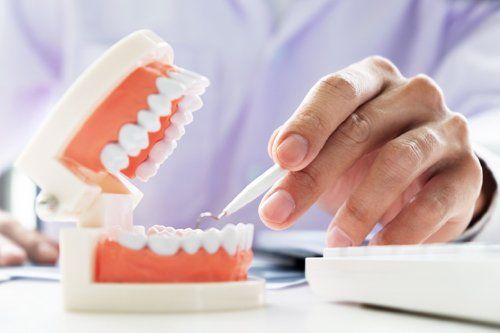Why You Should Opt for Metal-Free Dental Restorations

You can categorize dental restorations into two main groups: metal and non-metal restorations. For example, you can choose between metal dental fillings (such as gold and silver amalgam) and porcelain dental fillings. Both categories have their pros and cons, but the following features of non-metal fillings stand out.
Strength and Durability
People think that metal dental crowns are stronger than metal-free crowns, but that is not the case. The composite dental crowns bond together with the teeth to form a strong bond that strengthens your weak tooth. The composite crown is a single piece of material, which reduces the risk of it being damaged. The design makes the metal-free crown more durable than the metal crown.
Natural Appearance
Although dental crowns strengthen and restore damaged teeth, people also use dental crowns for aesthetic reasons. For example, if part of your teeth is chipped or broken, you can use a dental crown to cover up the damage.
If your primary goal is to improve your smile or appearance, then you are better off with metal-free crowns instead of metal crowns. This is because metal-free crowns have a more natural look than metal crowns. With metal crowns, people will easily notice that you have a foreign material on your teeth, which isn't necessarily true with metal-free crowns.
No Allergic Reaction
A small percentage of the population is allergic to some of the metals found in metal restorations. The allergic reactions irritate and inflame the soft tissues of the mouth, such as the gums. Such allergies may force you to replace your dental restorations.
Fortunately, metal-free dental restorations don't trigger allergic reactions. Therefore, you won’t have to worry about the irritations or the need to replace your dental restorations due to the irritations.
No Worries About Mercury
The metal amalgam in dental restorations contains mercury as one of the metal components. Mercury is usually poisonous, but the amounts in dental restorations are safe for healthy adults. However, research has not ruled that the mercury amounts in dental restorations are safe for pregnant mothers, fetuses, and children under the age of six.
Although the composite dental restorations don't contain any known poisonous substances, if you want to err on the side of caution, you are better off with the non-metal restorations.
Low Risk of Infection
Metal restorations typically consist of separate pieces of materials. A titanium implant, for example, is two pieces of titanium that manufacturers have fused together. In case the two pieces shift after treatment, they may create a space between them which bacteria might exploit, leading to an infection. You don't have to worry about this risk if you get a metal-free treatment.
No Metal Absorption
If you have metal dental devices in your mouth, some of the metal ions may leak and get absorbed in your mouth. For example, research has shown that natural teeth absorb some of the nickel , chromium, and iron in stainless steel dental crowns.
Even if the dangers of the absorption are not clear, you may want to err on the side of caution and use metal-free dental devices to avoid such risks.
Price
Lastly, you also have to consider the issue of price. Most of the metals in dental devices are premium metals that are not cheap. If you want to restore damaged teeth inexpensively, you are better off with the metal-free restorations. The price advantage is even more apparent if you need to restore multiple teeth.
Rabel Family Dentistry General Dentistry can help you restore your damaged teeth whether you want metal or non-metal restorations. In the end, even the metal restorations are better than no restoration at all. Contact us for all your dental problems, and we will do our best to strengthen your teeth and make them beautiful again.






